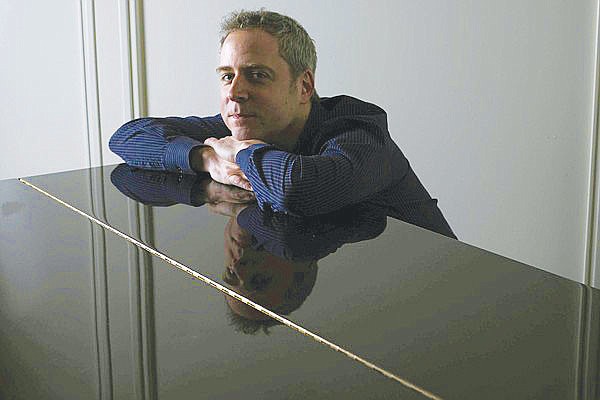- April 18, 2024
-
-
Loading

Loading

It was a historic moment last week when the Tokyo String Quartet and Jeremy Denk got together at the Van Wezel Performing Arts Hall. The Tokyo was in the middle of its farewell tour but, looking back, both the Tokyo and Denk got their starts in the music field on the roster of Young Concert Artists — the quartet in 1970 and Denk in 1997. In the years since, they each pursued their own careers, which skyrocketed them into the annuls of superstardom through their recordings and live appearances, yet neither had much to do with the other, until Brahms brought them together in Sarasota.
With little rehearsal, they brought off a beautifully sculpted, majestic reading of the Brahms F minor Piano Quintet, a popular, passionate piece that allows listeners to wallow in the gorgeous sounds of romanticism. Interestingly, Brahms wrote this work with some difficulty at first (it was revised several times), but what finally emerged has the sound of the future: askew, asymmetrical rhythms in the slow movement and a finale that has many of the composer’s folky moments mixed with a chromaticism that lays the foundation for what transpired several decades later.
Fascinatingly, Bartok’s Fourth String Quartet, written in 1928 — just 31 years after Brahms’ death —preceded the Brahms piece on the program. I don’t use “fascinating” lightly. I first experienced some of Bartok’s six String Quartets when I was a student at New York’s High School of Music and Art, and I have to admit they sent me and my best friend into teenage paroxysms of giggles that got us thrown out of Carnegie Hall more than once!
For years, all I heard in them was a bunch of angry, buzzing mosquitoes. Members of the Juilliard, Emerson, Takacs and Guarneri quartets played them on my WQXR programs and tried to teach me the joys of these Bartok works. They didn’t succeed. While I loved most other Bartok, with his folky themes and jazzy, exciting rhythms, I couldn’t take his quartets. So, seeing one of them on the program of the Great Performers’ Series of the Sarasota Concert Association did not exactly send me paroxysms of joy.
The Tokyo String Quartet, however, triumphed where others had failed. They made me a convert. I suddenly “got” what Bartok wrote, from the melodies and cross rhythms, to the humor and wit and, finally, the beauty of this work. Yes, the quartet played it with depth and understanding but, then, so did the other groups I’d heard. Perhaps it was the clarity and texture the Tokyo brought to it, the sexiness of their pizzicatos in the allegretto movement and the fervent fire of the why they treated the rhythms and melodies that got me. I’m indebted to them for making me hear the light … even if it did take more than half a century.
Unfortunately, the Mozart Quartet in D that opened the program, the “Hoffmeister,” didn’t fare so well. It sounded thin and pallid, and there were numerous pitch problems throughout the four movements. The intonation was the fault of the musicians, but the thin, pallid sound was probably because of the appalling acoustics in the Van Wezel. That hall is now a place solely for “shows” that are amplified. Anything acoustic, especially small ensembles attempting to play Mozart or Haydn, just doesn’t belong there. The sound is swallowed up, and there’s no help for it, no matter how far forward one sits on the (uncomfortable) seats. This is not a place for chamber music. It’s hardly a place for orchestras anymore, but that’s another story.